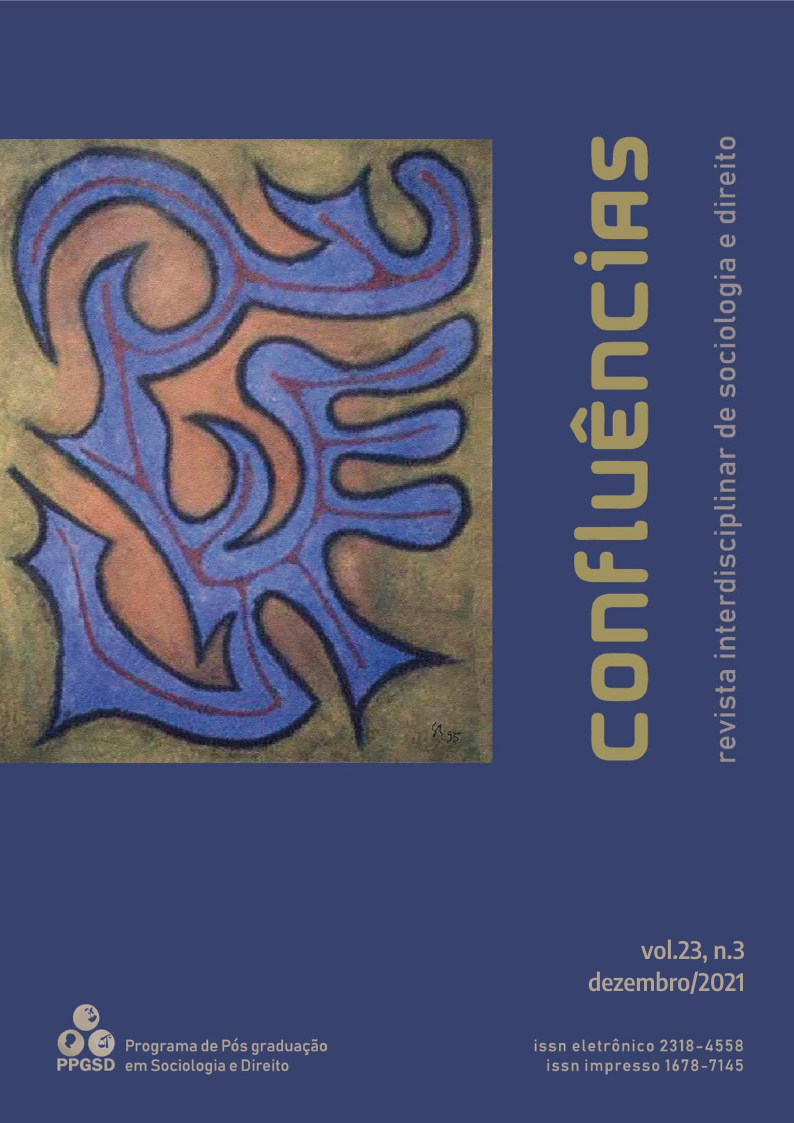FAKE NEWS AND ITS APPROACHES IN BRAZIL:
Balance of a evolution of a research agenda
DOI:
https://doi.org/10.22409/conflu.v23i3.44497Keywords:
fake news. desinformação. Ciências SociaisAbstract
Bibliographic surveys on international articles show that the majority of researches on “fake news” have been developed by the areas of medicine and communication/journalism, mainly through quantitative methods, with a significant scarcity of Social Sciences and Humanities, reflecting on political dimensions, electoral and democratic impacts. This article develops systematic bibliographic review, employing explicit and replicable procedures, in search of articles further analyzed substantively in order to describe temporality, field of knowledge, research goals, methods adopted and other characteristics of interest. The authors mapped research articles published in portuguese or by brazilian authors until august 2020, in journals present in the international database DOAJ (Directory of Open Access Journals), in which the expression “fake news” appeared in the title, abstract and/or in the keywords. The search resulted in 68 articles, with concentration mainly in the fields of Social Sciences, Communication, Health and Education. Predominantly, the works discussed characteristics of fake news content, countermeasures, and conceptual discussions about the impacts of disinformation. Qualitative approaches were more frequent than quantitative. The COVID-19 pandemic declared in 2020 propelled the research about the topic more than presidential elections of 2018. The contrast with international production suggests space for further investigation that could be comparative, quantitative, with more methodological rigour in qualitative analysis and focus on prevalence of fake news.Downloads
References
Bright, J. (2018). Explaining the Emergence of Political Fragmentation on Social Media : The Role of Ideology and Extremism. 23(January), 17–33. https://doi.org/10.1093/jcmc/zmx002
Bright, J., Hale, S., Ganesh, B., Bulovsky, A., Margetts, H., & Howard, P. (2019). Does Campaigning on Social Media Make a Difference? Evidence From Candidate Use of Twitter During the 2015 and 2017 U.K. Elections. Communication Research. https://doi.org/10.1177/0093650219872394
Castells, M. (2018). Ruptura. Sapere Aude, 9(17), 31–44. https://doi.org/10.5752/p.2177-6342.2018v9n17p31-44
Flynn, D. J., Nyhan, B., & Reifler, J. (2017). The Nature and Origins of Misperceptions: Understanding False and Unsupported Beliefs About Politics. Political Psychology, 38. https://doi.org/10.1111/pops.12394
Ha, L., Andreu Perez, L., & Ray, R. (2019). Mapping Recent Development in Scholarship on Fake News and Misinformation, 2008 to 2017: Disciplinary Contribution, Topics, and Impact. American Behavioral Scientist. https://doi.org/10.1177/0002764219869402
Pennycook, G., Cannon, T. D., & Rand, D. G. (2017). Prior Exposure Increases Perceived Accuracy of Fake News. SSRN Electronic Journal. https://doi.org/10.2139/ssrn.2958246
Swire, B., Berinsky, A. J., Lewandowsky, S., & Ecker, U. K. H. (2017). Processing political misinformation: Comprehending the trump phenomenon. Royal Society Open Science, 4(3). https://doi.org/10.1098/rsos.160802
Zanatta, R., Amadeu, S., Gomes, P. G., Campos, R., Fausto Neto, A., Entes, A., & Seibet, T. (2018). Fake News: ambiência digital e novos modos de ser. IHU On-Line, 56. http://www.ihu.unisinos.br/78-noticias/578205-fake-news-ambiencia-digital-e-os-novos-modos-de-ser
Downloads
Published
How to Cite
Issue
Section
License
Copyright (c) 2021 Amanda Freitas, Rogério Schlegel

This work is licensed under a Creative Commons Attribution-NonCommercial 4.0 International License.







